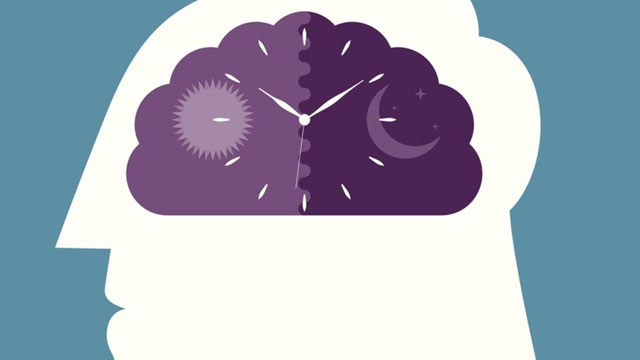PARIS — Messing with the natural rhythm of one’s internal clock may boost the risk of developing mood problems ranging from garden-variety loneliness to severe depression and bipolar disorder, researchers said on Wednesday.
The largest study of its kind, involving more than 91,000 people, also linked interference with the body’s “circadian rhythm” to a decline in cognitive functions such as memory and attention span.
The brain’s hard-wired circadian timekeeper governs day-night cycles, influencing sleep patterns, the release of hormones and even body temperature.
Earlier research had suggested that disrupting these rhythms can adversely affect mental health, but was inconclusive: most data was self-reported, participant groups were small and potentially data-skewing factors were not ruled out.
For the new study, an international team led by University of Glasgow psychologist Laura Lyall analysed data — taken from the UK Biobank, one of the most complete long-term health surveys ever done — on 91,105 people aged 37 to 73.
The volunteers wore accelerometers that measured patterns of rest and activity and had this record compared to their mental history, also taken from the UK Biobank.
Individuals with a history of disrupting their body’s natural rhythm — working night shifts, for example, or suffering repeated jetlag — also tended to have a higher lifetime risk of mood disorders, feelings of unhappiness, and cognitive problems, the researchers found.
‘Owls’ and ‘Larks’
The results held true even when the potential impact of factors such as old age, unhealthy lifestyle, obesity and childhood trauma were taken into account, they reported in The Lancet Psychiatry, a medical journal.
The study cannot say conclusively that body clock disturbances are what caused the mental risk, instead of the other way round.
But the findings “reinforce the idea that mood disorders are associated with disturbed circadian rhythms”, said Lyall.
Measurements of people’s rest-work cycles could be a useful tool for flagging and treating people at risk of major depression or bipolar disorders, the researchers concluded.
One limitation of the study was the average age of the trial participants — 62.
“Seventy-five per cent of [mental] disorders start before the age of 24 years,” said University of Oxford researcher Aiden Doherty, commenting on the paper.
“The circadian system undergoes developmental changes during adolescence, which is also a common time for the onset of mood disorders,” he added.
Humans have been shown to be either “owls” or “larks”, corresponding to so-called genetic “chronotypes” that determine whether we function better at night or during the day.
Last year, the Nobel Prize for medicine was awarded to three US scientists who pioneered our understanding of how the circadian clock ticks.
